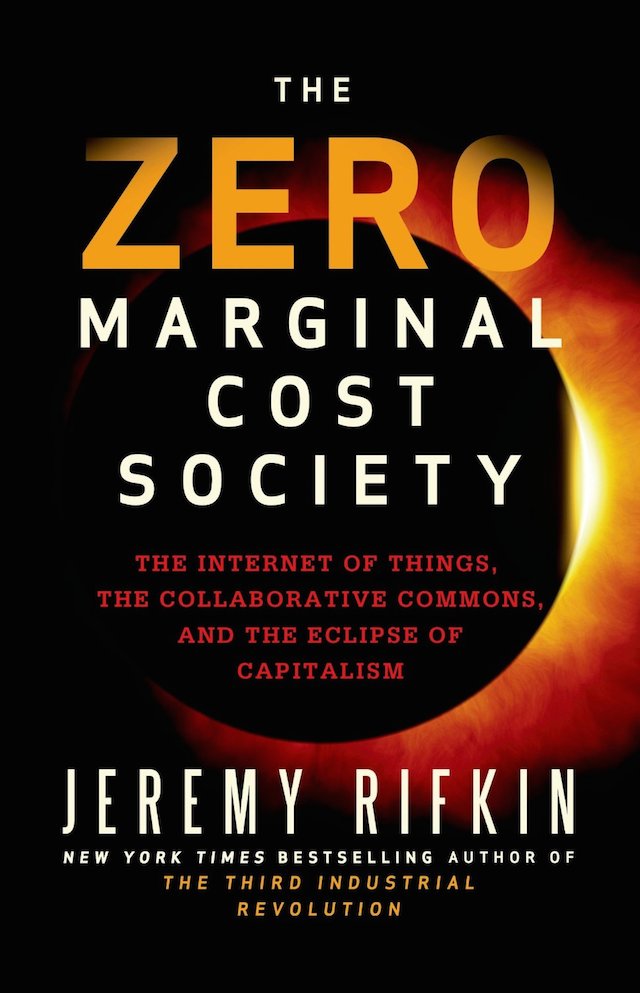29 September 2014 | Book Reviews, Book Reviews 2014 | By Christophe Lachnitt
Book Review: “The Zero Marginal Cost Society: The Internet Of Things, The Collaborative Commons, And The Eclipse Of Capitalism” By Jeremy Rifkin (2014, 368 Pages)
A global theory of the world. Maybe too global?
Jeremy Rifkin is a celebrated economic and social theorist, teacher and political advisor.
In “The Zero Marginal Cost Society”, he argues that a new economic paradigm – the Collaborative Commons – will transform our way of life and will likely settle in, by 2050, as the primary arbiter of economic life in most of the world.
This is the result of the coming together of the Communications Internet with the fledgling Energy Internet and Logistics Internet in a seamless twenty-first-century intelligent infrastructure – the Internet of Things (IoT) – which is giving rise to a Third Industrial Revolution. The Internet of Things is already boosting productivity to the point where the marginal cost of producing many goods and services is nearly zero, making them practically free.
Rifkin covers many revolutions produced by “the zero marginal cost society”, including the advent of a prosumer-driven manufacturing model, the unbundling of productivity from employment, the creation of a sensor-driven global distributed network, the shift from ownership of goods to access to goods, the commoditization of free, renewable energies, the reinvention of logistics, transportation and urban life, and the unstoppable development of social entrepreneurialism.

Though repetitive at times, this book is packed with information that makes it an essential read for anyone interested in the future of our planet.
What puzzled me most was Rifkin’s attempt at defining a global, all-encompassing theory of the world and connecting every bit of information to this paradigm. It obviously lays the foundations for a very effective marketing strategy to promote “the zero marginal cost society” but it sometimes narrows the scope of the book.
RATING: B.


